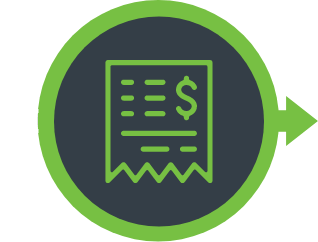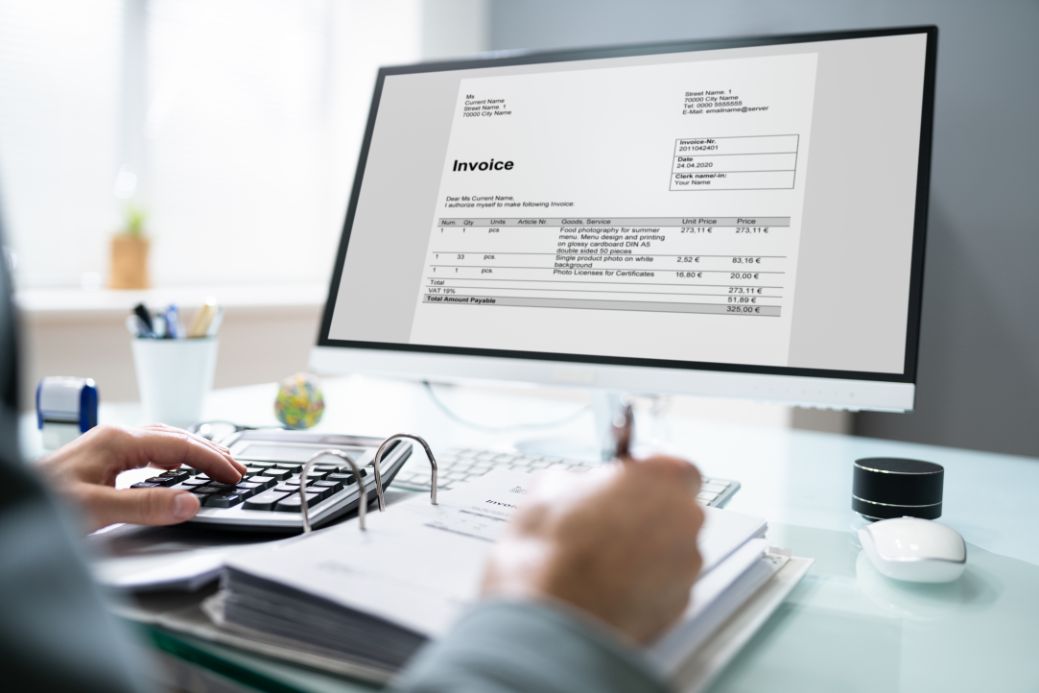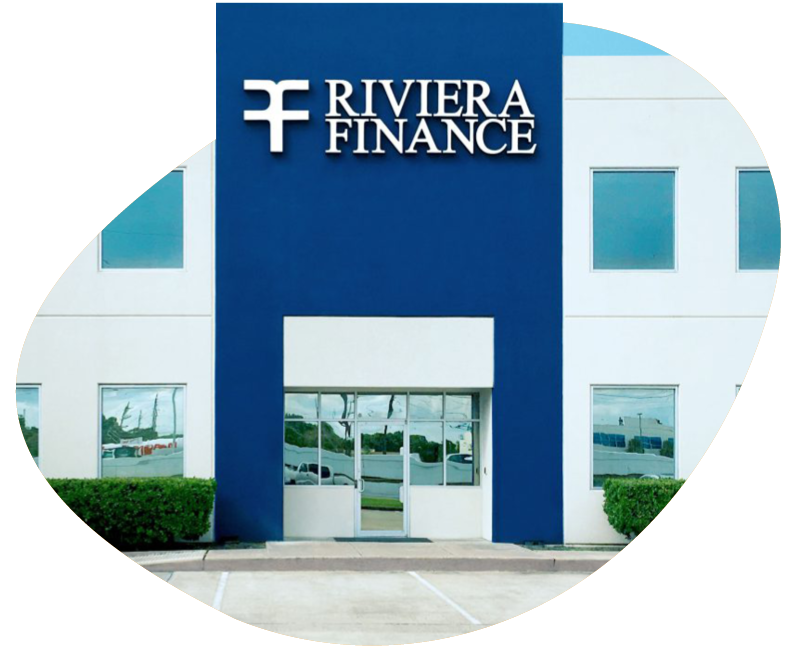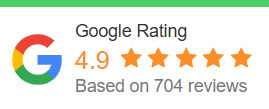Turn Unpaid Invoices Into Cash
INVOICE FACTORING
Waiting For Customers To Pay?
Are you waiting for your customers to pay their outstanding invoices? You’re not alone. Most of the businesses we work with are experiencing the same cash flow problems you are and they have found help with invoice factoring.
What Is Invoice Factoring?
Invoice factoring offers businesses the highest degree of flexibility when it comes to getting working capital. Invoice factoring gives you the freedom to sell open invoices and receive cash for a set discount fee. Invoice factoring is a financial service used to boost a company’s cash flow. Invoice factoring is not a loan. A company sells its unpaid invoices to the factoring company at a discount. The factoring company provides immediate capital for those invoices. The factoring company now owns the invoices and will collect according to the payment terms of the unpaid invoices from the customer who is being invoiced, typically 30-60 days.
Sample Invoice Factoring Scenario
Let’s take a look at a sample invoice factoring scenario below to better understand how this type of alternative funding works:
A contractor doing maintenance for municipalities is billing for completed work but won’t collect payment for 30, 60 or 90 days. In the meantime, he needs to pay his employees and purchase materials for his next job. In order to solve his cash flow problem, he chooses to factor his invoices.
Once his service is completed, he sends his invoice to the factoring company instead of the municipality, his customer. The factor verifies completion of work and advances up to 90% of the invoice within 24 hours.
The factor sends the invoice to the customer and will collect payment in 30-60 days.
Once the factor is paid, the remaining 10% of the invoice value will be paid to the contractor, minus the factoring fee.
Related: Factoring Costs and Benefits
Our Process

STEP 1
Apply
Complete form & become a Riviera client

STEP 2
Service
You deliver your products or services

STEP 3
Send
Send your invoices to Riviera Finance

STEP 4
Get Paid
Riviera verifies & pays you within 24 hours
How Is Invoice Factoring Different Than a Bank Loan?
Invoice factoring can be an excellent option for companies that need money quickly but who aren’t able to secure a conventional bank loan. Many refer to business factoring by several names such as receivables factoring, invoice discounting, invoice factoring and debtor financing.
The net result is that your company can convert its receivables into immediate operating cash. That way, you will not have to wait 30, 60, 90 days or more for your customers to pay. In this blog post, we explore how invoice factoring is different than a bank loan.
How Are Invoice Factoring and Invoice Financing Different?
Invoice financing, also known as accounts receivable financing, is a bit different from factoring. Instead of selling your invoices to a factoring company, you use the invoices as collateral to get access to working capital and you remain responsible for collecting payment on the invoices. Accounts receivable financing is a form of asset based lending, more similar to a loan, where the line of credit is based on the value of your accounts receivable. Qualifying for accounts receivable financing, is also more similar to qualifying for a loan. You must have a certain number of years in business and provide financial statements to show profitability.

Invoice Factoring Pros & Cons
There are benefits and drawbacks to every type of financial support. Bank loans may require a strong credit report or collateral to secure your loan, while other types of financing may ask for part ownership of your company or future earnings. Invoice factoring has some pros and cons, too.
The Pros of Invoice Factoring
Fast Business Capital
Invoice factoring can provide immediate working capital to help cover a cash flow gap caused by slow-paying customers.
Improved Cash Flow
You can keep loyal customers on longer payment terms but still improve your cash flow to help you grow your business.
Easier Approval
Invoice factoring provides financing to companies that might not be able to get capital from other sources, such as a traditional bank, because of a lack of collateral, a limited operating history, or poor personal credit. Typically, factoring companies base approval on the value of the invoices you’re looking to factor and the creditworthiness of your customers.
Bad Debt Protection
Non-recourse factoring essentially provides accounts receivable insurance, along with the cash advance.
The Cons of Invoice Factoring
Not All Invoices Qualify for Factoring
The invoice must be for a B2B transaction. And the service must be completed before the factoring company will purchase the invoice.
Customers’ Bad Credit or Weak Finances Could Derail Your Financing
The factoring company will need to verify the creditworthiness of your customers. If the customers have a history of late or missed payments, or if the business has weak revenue, you may not be approved for the financing.
No Guarantee of Collection
There’s no certainty the invoice factoring company will successfully collect on your unpaid invoices. If it’s a recourse factor, the factoring company may require you to buy back the unpaid invoice. If you can’t afford to risk customer non-payment, make sure the factoring company you choose offers non-recourse factoring
Benefits of Invoice Factoring
Riviera Finance works with a variety of companies in the US and Canada to help them maintain cash flow and meet weekly financial demands.

Immediate Cash
Our process is built around immediate response to client needs, and the best cash turn around in the industry.

Quick Credit Checks
Receive credit checks on your customers

Low Risk
Competitive rates and no hidden fees

Financial Freedom
No debt is created

Bad Debt Protection
Riviera takes on all the credit risk!
Get Started
Complete the form for a Free Consultation.
How to Select a Factoring Company
Selecting the right factoring company for your business is extremely important. A factoring company is not solely a source of working capital for your business; in many ways, a factoring company functions as a partner. You will be in contact with the factoring company on a regular basis and they will also be responsible for invoicing your customers. With this in mind, below is some criteria to consider when when choosing an invoice factoring company:
Ultimately, you will have to consider how important each of these items is for your business and look for an invoice factoring company that will provide you and your business with the best combination of experience, service, and terms. You’ll want to find a partner and arrangement that offers you the funds, flexibility, transparency, and terms that works best for you.

The Riviera Difference
Founded in 1969, Riviera Finance is nationally recognized as a leader in business financing and a top invoice factoring company. Riviera Finance provides full-service, non-recourse invoice factoring to growing companies.
We are the experts in invoice factoring and accounts receivable management. Riviera Finance maintains offices throughout North America to provide face-to-face service and expert financial solutions to small and medium-sized businesses. Currently serving more than 1,400 clients, Riviera holds an excellent credit rating, has shown consistent, positive earnings and maintains a diversified capital base.
We have more than 25 invoice factoring company offices located throughout the US and Canada to handle all of your invoice factoring needs.
History of Factoring
Invoice factoring is a type of business financing that’s an alternative to conventional business loans. A factor buys invoices from a business, allowing it to get cash up-front rather than having to wait for customers to pay. This type of financing has quite a few benefits, especially for smaller businesses that may not qualify for substantial bank loans. Although this type of financing has gotten more popular in recent years, it’s actually been around for some time.
Factoring can be traced back to ancient times. It was used extensively during the Roman Empire. This was helpful for merchants who conducted business in faraway places, as Rome was one of the first global empires. Factors made it possible for these merchants to fund expeditions and to do business during slow seasons. The ancient world was largely dependent on agriculture, where weather, as well as local economic conditions, resulted in great fluctuations in crop price. Factors provided merchants with the resources that helped them survive and even thrive even when conditions were less than ideal.
Today, factoring is widely used by businesses in every B2B industry as a source of working capital to fund daily operations.

Common Questions About Invoice Factoring
Are you a good fit for invoice factoring?
In order to be a candidate for invoice factoring, you must be invoicing other business customers for delivered goods or services. If you have sales, but cash flow issues are preventing you from keeping up with business expenses or increasing sales, then invoice factoring will benefit your business.
Is invoice factoring a loan?
Invoice factoring is not a business loan, rather a form of business financing. There is no money to be repaid and no long-term commitments. Instead, it is an advance on a business’ existing accounts receivable. The unpaid invoices are actually sold to the factoring company for immediate business capital.
What types of companies use invoice factoring?
Businesses in many different stages and industries use invoice factoring to help their business grow and expand. Factoring is suitable for start-ups, growing companies, and any businesses who can’t always wait 30-60 days for business customers to pay. Invoice factoring is a flexible form of financing that grows with a company as their financing needs change. Riviera Finance works with the following industries, among others:
How Do Companies Qualify for Invoice Factoring?
To qualify for factoring, your company must have the following items:
- Invoices to Factor
- Creditworthy Customers
- A Completed Factoring Application
- An Accounts Receivable Aging Report – if applicable
- A Business Bank Account
- A Tax ID Number
- A Form of Personal Identification
Riviera Finance offers a completely free and simple online factoring application. We recommend that you get prepare these documents and have them available as you complete our online application process. Our team of financial experts is ready and waiting to speak with you today and get you the cash you need to fund your business expenses.
Free Insights About Invoice Factoring
The following blog articles may be helpful in understanding invoice factoring and how it can help your business grow.



Follow Us